I’d like to give a warm welcome to my friend and new contributor, Maia Welbel! She is a writer and sustainable food activist currently living in Chicago. She’ll be taking on conversations for Closed Loop Cooking and we are thrilled to have her. You can read more on Maia here.
—
Last week I got a text from my friend Celia Ristow with a photo of the fattest zucchini I’d ever seen and a message saying she had just plucked it from her garden and it was fated to become an equally plump batch of muffins.
Since Celia recently moved to Madison, sadly too far away from me in Chicago for zucchini muffin delivery, we’ve kept each other consistently updated on all notable cooking and baking endeavours.
Celia is the founder of the blog Litterless, a guide to zero waste living with zero stress or judgement. In addition to being the person I text when I achieve the perfect coconut oil pie crust, she has inspired me to be more conscious of the waste I create, and introduced me to strategies for reducing it.
For our August Interview Series I talked to Celia about starting her blog, moving in with her partner, and finding balance in a zero waste lifestyle.
What first got you interested in environmentalism and the zero waste movement?
I grew up in an environmentalist home. My parents were always conservationists, but in a way that was geared towards wildlife conservation and public lands. Those things are very important to me, but I became more interested in the what environmentalism means for someone who lives in a city or a suburb.
I learned about the zero waste movement in college, but at the time I was living in a dorm and eating in a cafeteria—I didn’t have the autonomy that a zero waste lifestyle requires. So it wasn’t until I graduated from college, when I was grocery shopping every week and cleaning my kitchen for the first time, that it made sense to try to become zero waste.
What were some of the first changes you made?
I grew up composting at home, but my college didn’t have a compost system until my senior year, so I spent three years feeling guilty and anxious about throwing food away. Like I would go on walks and pitch apple cores into the woods. So when I moved to Chicago one of the first things I did was set up composting. I didn’t know what options were out there, so I just did a Google search and found a compost pickup company.
Another one of the first changes I made was replacing plastic produce bags with cloth ones. Since I was living in my first apartment, a lot of the kitchen stuff was new to me anyway, so it was pretty easy to make those changes. Whereas in the bathroom I had things like face wash, lotion, shampoo, and tampons that I liked, most of which were packaged in plastic, so it took me a lot longer to change those habits.
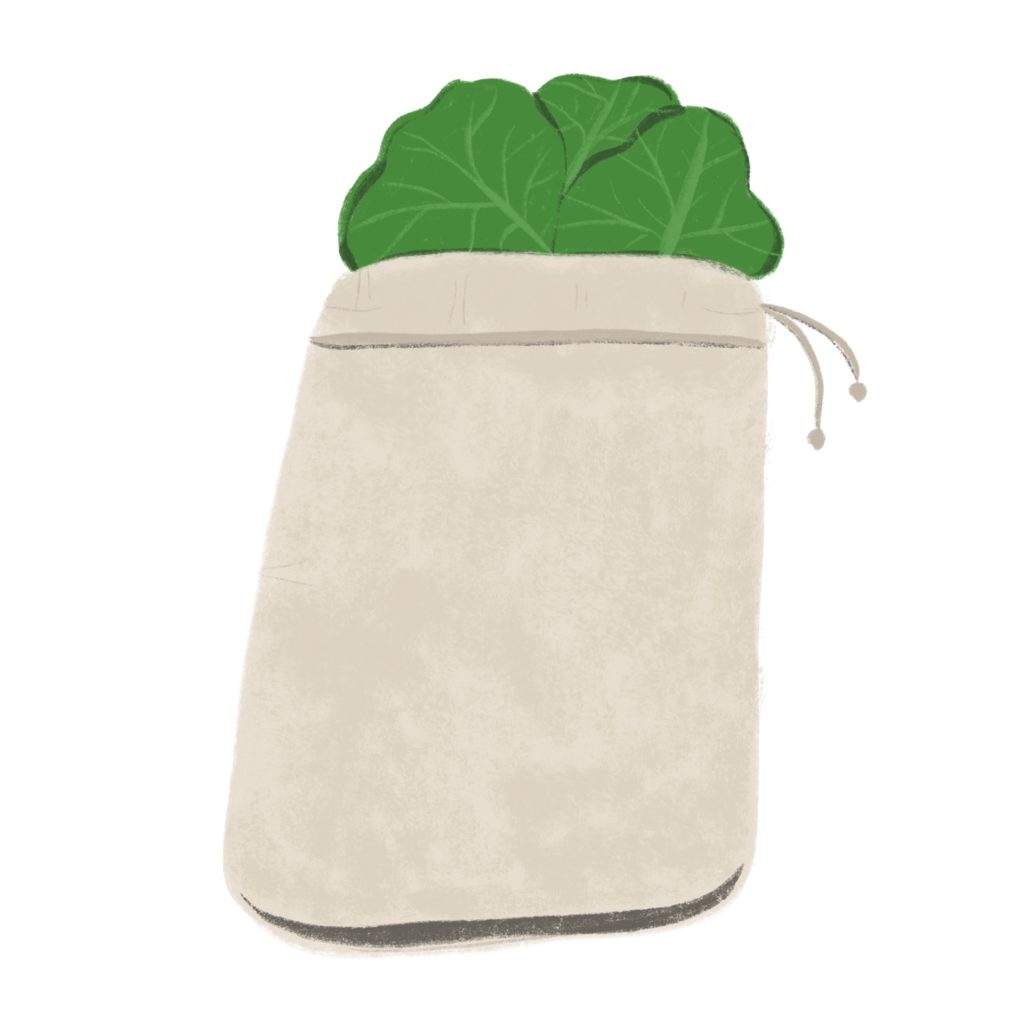
Have you found zero waste alternatives for all of your old favorites?
Mostly. I have given certain things up because they were packaged in plastic and then brought them back because I didn’t like living without them. Soba noodles and canned coconut milk, for example. But in general I feel really comfortable. I’ve run the gamut from feeling like I needed to do everything perfectly to realizing I need this to work for me, and that might mean buying a plastic pack of soba noodles sometimes. I’ve landed in a place where I feel good about my general choices, so if I choose to purchase something that’s not zero waste because it’s earned a place in my life, I don’t feel bad about it.
How do you define zero waste in your life?
I’m glad you asked how I define it in my life because I think it looks different for everyone. For me it looks like avoiding plastic use and trash wherever I can, but doing so in a way that I can keep up for a lifetime. I’m not interested in being a perfect zero waster for a week or a month—making absolutely no trash and stressing myself out. What I’m interested in is finding rhythms and sustainable changes that I feel like I could do forever. So that means I make a little bit of trash, a good amount of recycling, and a lot of compost, and that’s fine.
I live with my partner, Julian, now and he’s very much on board, but I think that flexibility is helpful when you’re living with someone. We live in a world where to be actually zero waste is aspirational—we don’t live in a vacuum.
What kinds of shifts did you have to make when you went from living by yourself to living with your partner?
I feel pretty lucky that Julian has been with me every step of the way. When I first started four years ago, he didn’t understand why we should be going out of our way to compost or why we couldn’t just use a plastic bag for groceries and recycle it. I think it eventually started to make the same sense to him that it does to me, and the nice thing is that our zero waste habits compliment each other. He has a very technical brain so he takes charge of the recycling. He knows where to bring weird items and he knows exactly what we can and can’t put in our bins, so I rely on him for that. I handle other aspects like what we can and can’t compost.
I think it’s actually been a little easier since we moved in together, although part of that comes from being okay with small pieces of trash. It’s not like I need him to keep our household trash in a jar. That works well for certain families, but I think if we tried that I would be stressed out and policing his behavior in a way that isn’t helpful. I don’t mind if he brings home a granola bar wrapper. I wouldn’t want him to be judgemental of my choices so I’m not judgemental of his.
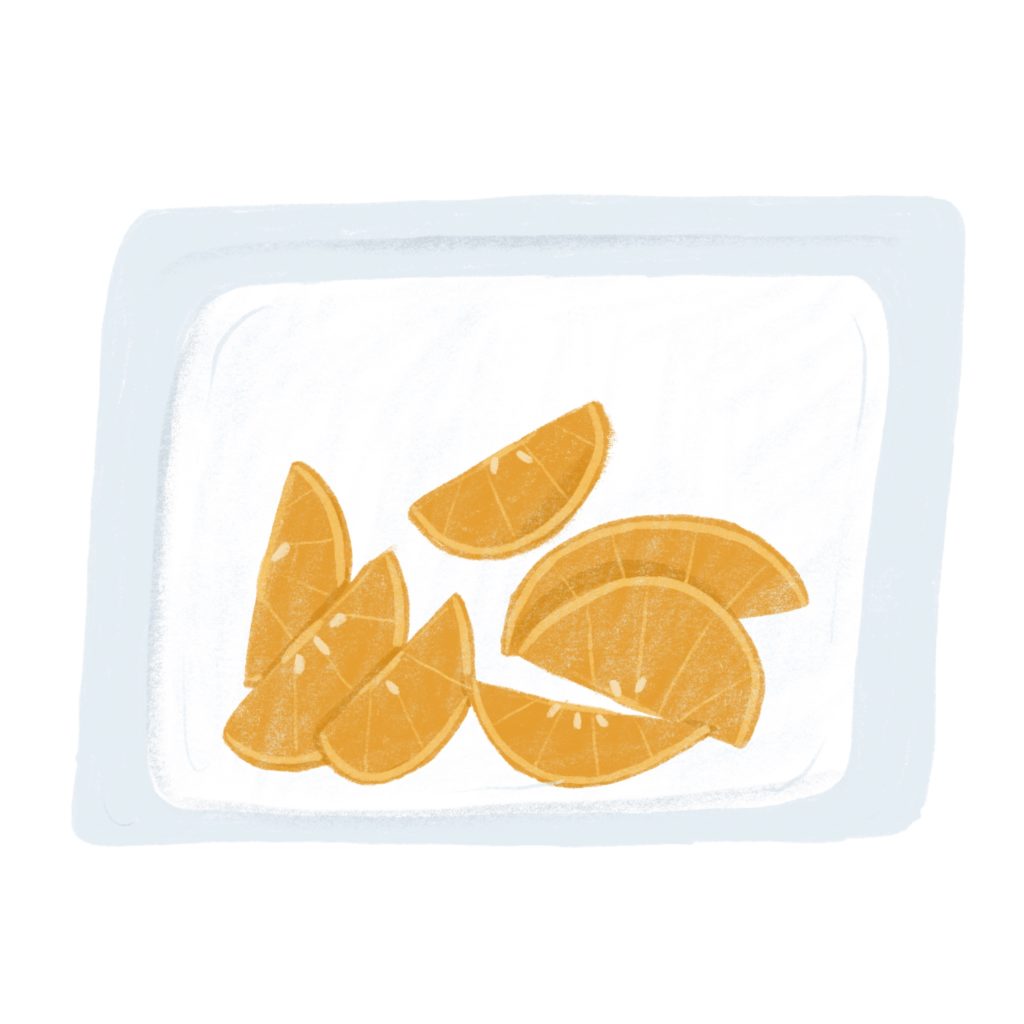
How did you get started with your blog?
I started Litterless in 2015. I had been trying to live a zero waste life for about a year and while I knew of some online resources, there wasn’t a blog that really spoke to how I wanted to be zero waste. I felt like I was seeing the same content over and over. Of course now there are so many great blogs, it’s really taken off, but at the time I thought, if there’s something that I’m looking for, other people are probably looking for it too. So I created the blog that I wanted to read.
Has the blog changed since you first started?
I first thought of Litterless as a journal of my life. I did and still do feel uncomfortable telling people what to do, so I wanted the focus to be on my personal choices. To a certain extent that’s still what it is, but I found that, to me at least, talking about my life is not super interesting. So I started to do a lot more how-to posts and offering practical advice.
Are there still aspects of striving for zero waste that you find challenging?
The hardest place to be zero waste for me is when I’m travelling. Zero waste depends so much on what local resources are available, and when you live somewhere you can familiarize yourself with the resources in your area, whether it’s bulk groceries or compost drop-off points—all these things you cobble together to live a zero waste life. When you’re travelling you don’t know the local resources, and you also might not be able to take advantage of them because they are geared toward residents. Not to mention the throwaway culture associated with eating meals on the plane or on the road.
When I travel I always start with the best of intentions. I bring a reusable fork, water bottle, and container for leftovers, and I Google where I can compost. I often can’t find a place, and then I just have to let it go and know that it’s a weekend or a week out of my life.
Expecting zero waste perfection can suck the fun and spontaneity out of travelling if you are going to worry about it, so I try not to. One thing I offer on Litterless is a state by state guide of where to shop bulk and compost. My hope is that people can use the guides for where they live and also to find options for when they’re travelling. I would love to have a comprehensive worldwide composting directory available to me, but for now the U.S. is a good start.
Can you recommend some simple strategies for reducing food waste and single use items in the kitchen?
A great place to start is at the grocery store. Zero waste people talk a lot about buying in bulk with your own bags or jars, and that’s a great way to reduce plastic waste, but bulk items aren’t available for everyone, especially outside of major cities. What I recommend is focusing on avoiding trash in the produce aisle because that is something you can do at almost any grocery store. You can choose to buy a loose head of lettuce instead of buying a plastic tub of pre-washed salad greens, or buy mushrooms that you put in a paper bag instead of the ones that come wrapped in plastic on the styrofoam tray. If you’re buying something where you’re not going to eat the skin, like a banana or a grapefruit, you can forgo the plastic bag and just put it directly into your cart. And if you’re willing to invest you can buy cloth produce bags and use them how you would use the plastic bags in the produce aisle.
Composting is also so critical, and if you have a backyard it’s easy once you get it set up. You can get a composter, put it in your yard, and toss your food scraps in it. If you live in a city or you don’t have a backyard you can try to find a local pickup service or a drop-off spot.
If you’re not ready to compost though, there are things you can do to reduce your food waste, which is also a great way to get into the spirit of things. You can use your vegetable scraps to make broth, or make an effort to buy less food so less of it goes bad, both of those are great routes for starving the landfill.

Any books or resources you would recommend to someone trying to live and eat more sustainably?
An Everlasting Meal by Tamar Adler its a book that taught me to make the best of the food that I have without feeling like I need to follow a recipe perfectly. I think that philosophy is so key for wasting less food. It requires a little bit of cooking intuition and willingness to experiment, but that’s what gave me the confidence to try.
I also just read A Life Less Throwaway by Tara Button. It’s about how to buy things for life and how to care for your stuff so it lasts forever. It has incredibly practical tips for say, cleaning your dishwasher, or choosing the toaster that will last for years, and how to take care of it. Button is the founder of Buy Me Once, which is this online shop where everything in it has a lifetime guarantee. They search out products that are designed to last for decades, it’s a really cool concept.
One of my favorite blogs that I have been reading for years is Fairdare. A lot of zero waste content can feel very prescriptive, but when I read Fairdare I just feel encouraged, and like someone is cheering me on no matter what it looks like, no matter how imperfect, and I love that.
Stay hungry.
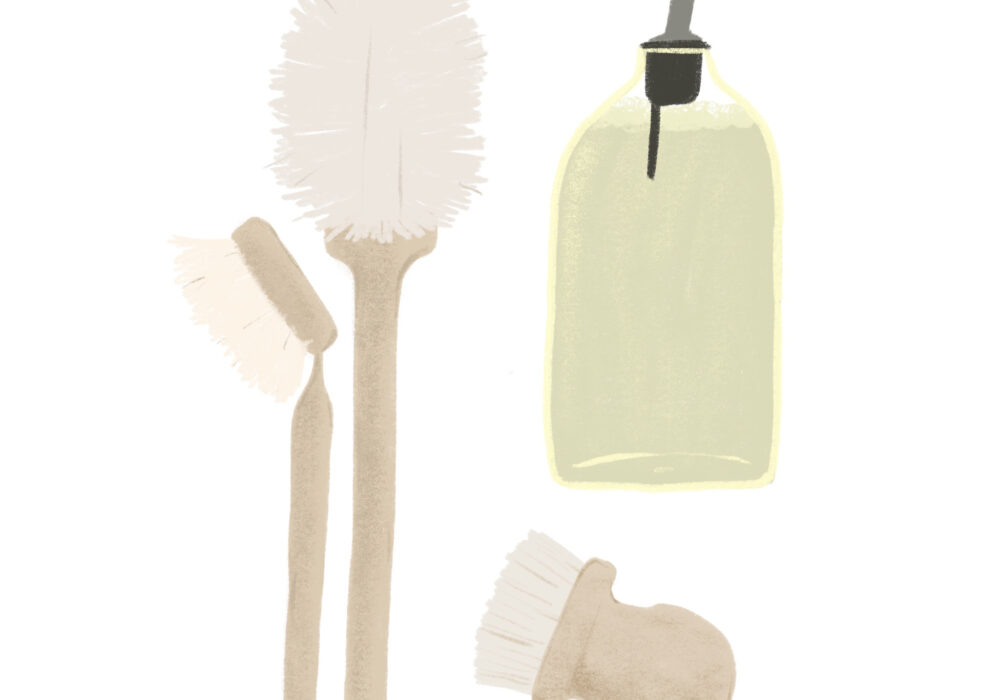



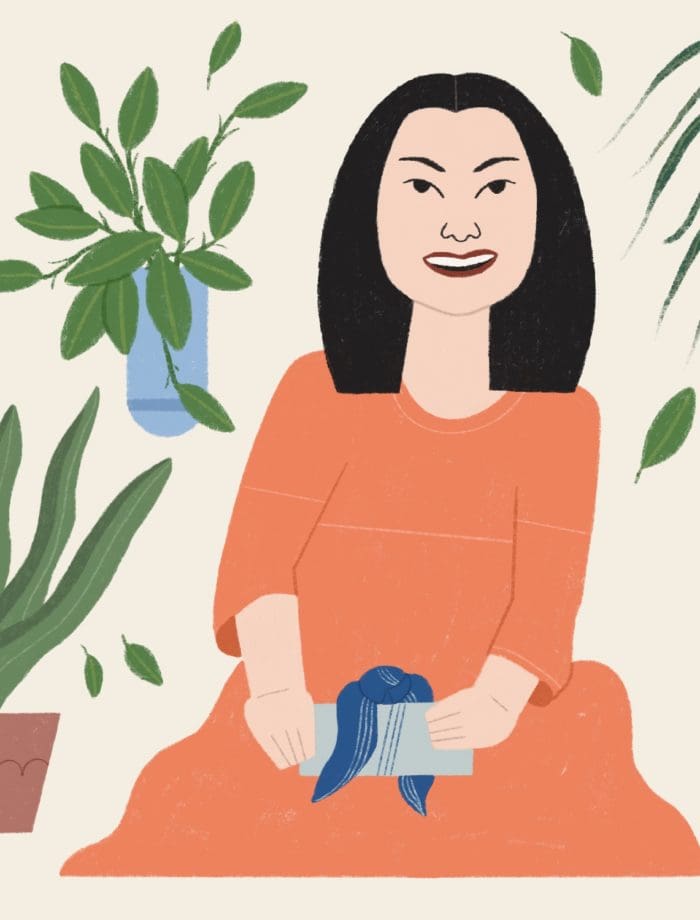
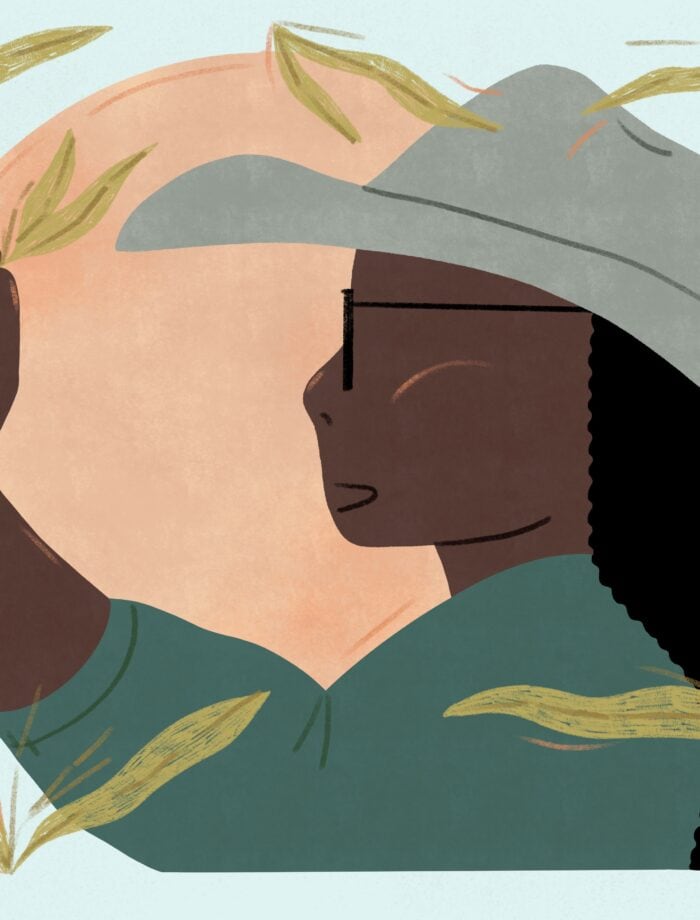
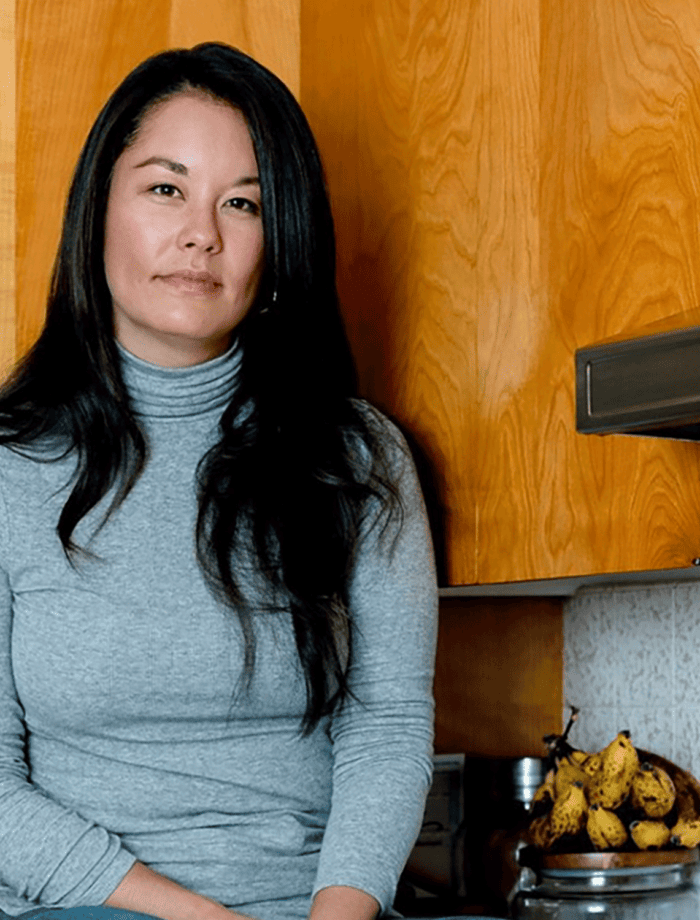
What a valuable perspective. I remember when I moved to Harlem and started a compost in my brownstone’s back yard, people thought I was legit insane. But I did it! I live in my own home now so there’s no one to raise their eyebrow at my compost bin (except my neighbors, but then it’s a time to connect and perhaps educate them a little bit). Thanks for sharing your POV!
You were composting before it was cool! I love that!
I really like her perspective on what zero waste looks like for her as opposed to someone else. Perfection makes things stressful, so sometimes you do buy the bag of soba noodles and that’s ok. Just doing your best to live waste-free helps everyone in the long-run.
Yes, exactly! Making the effort is still valuable and remembering that it is a continual work in progress.
I really like the questions in this interview and her perspective on changing habits to move into a waste-free mindset. will also check out the state-by-state guide to bulk shopping and composting. Thank you so much for sharing.
Of course! So glad this resonated with you Breona 🙂 Definitely check out her guides.
This is a nice informative interview, and I love the additional resources within the interview. It’s definitely tricky trying to get all family members on board with certain practices but it’s worth it.
Agree! Definitely something my partner and I struggle with, but I love the balance Celia has in her relationship and approach to zero waste.
We could all do better on the topic of reducing waste. Thanks for the valuable insights.
Absolutely! Thanks for taking the time Jade!
There is some great information in this interview. I’m by no means a zero-waster, but I think making even small changes to ward being more environmentally responsible is a step in the right direction.